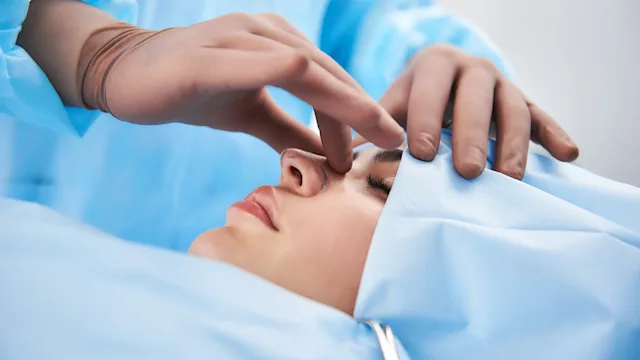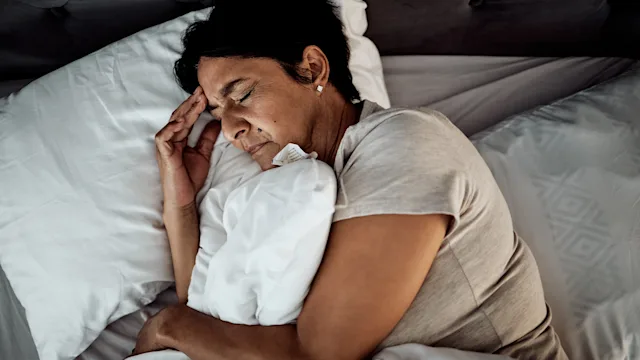Key takeaways:
If you want to make it easier to wake up early in the morning, consistency is key. Try to wake up and go to bed around the same time every day.
Habits that include light exposure in the morning can help reset your sleep cycle and improve morning alertness.
Getting enough sleep is essential at any age. Waking up earlier means going to bed earlier to feel and perform at your best.
Most people know the pain of an alarm that seems to go off too early. Not getting enough quality sleep can make mornings tough. And good sleep is essential for things like mood, a healthy immune system, and maintaining a healthy weight.
In addition to getting enough sleep, some easy changes can go a long way in making your mornings more manageable.
Is it better for your health to wake up early?
You’ve probably heard the phrase “the early bird gets the worm.” For some people, mornings may be the best time to fit in a workout, household chores, or work. Still, if you’re not getting enough sleep, the benefits of what you can accomplish by waking up early may not be worth it. Most experts recommend at least 7 hours a night for adults and even more for kids.
Search and compare options
If you’re already getting plenty of sleep, the major advantage of waking up earlier is having a schedule that fits with natural daylight. This can boost mood and help regulate your internal clock. But the time you wake up is probably less important than how much you sleep and the quality of your sleep.
For those who need to be up early for work or home obligations, though, some of the tips below can help.
Are some people naturally early birds?
Yes. Some people are born to be early risers. Researchers are learning more about the genes that give us a preference for when to be awake. Some of the terms you might hear related to your sleep preference are:
Circadian rhythm: This term refers to your body’s internal clock, which helps regulate when you’re awake and asleep during a 24-hour cycle.
Chronotypes: Your chronotype determines when you feel most awake. People with an early chronotype (morning larks) feel most awake early in the day. People with a late chronotype (night owls) feel most awake later in the day. Many people have an intermediate or in-between chronotype. And it can change throughout your lifetime.
But even if you’ve always been a night owl, becoming more of a morning person is still possible. There are several things you can do to adjust your sleep cycle to be more in line with your daily activities.
How can you make it easier to wake up earlier?
If you want to learn how to wake up early, there are three main areas to think about.
Start with a new bedtime routine
If you want to wake up earlier, the first thing to do is to figure out when you should go to bed the night before. And, as the saying goes, change doesn’t happen overnight. You can aim to set your alarm a few minutes earlier every morning until you reach your ideal wake-up time.
Read more like this
Explore these related articles, suggested for readers like you.
Dr. Mohammed Al-Halawani, a sleep medicine specialist, advises people to sleep at consistent times all week. The most important thing for being an early riser is to “maintain a fixed sleep schedule on work days and weekends,” he says. “Decide what time you want to wake up, and allow 8 hours in bed prior to that time. This will help you set your biological clock.”
Once you decide on your bedtime, there are a few things to do to make it easier to go to bed at that time:
Set a bedtime ritual. Do something that helps you wind down in the evening before bed, like a warm bath or reading a book you enjoy.
Avoid your phone and other electronics before bedtime. Studies suggest that prolonged exposure to screens delays sleep onset. Put the devices away before bed and keep them on silent if you can. For kids, consider storing devices outside the bedroom during sleep hours.
Improve your environment. A dark, quiet, cool room makes for the most comfortable sleep.
Many people also wonder about taking medication to help them fall asleep. Two of the most common ones are Benadryl and melatonin. These medications are sometimes OK in the short term. However, they can interact with other medications and can cause side effects like confusion. So, it’s best to talk to your primary healthcare provider before starting medications to help with sleep, even if they’re available over the counter.
Make a new wake-up plan too
Changing your routine in the morning will also help you train yourself to wake up early:
Use light to your advantage. Consider leaving your curtains open if you plan to wake up close to the natural sunrise. Some people also find a sunrise alarm clock can be helpful.
Figure out your snooze plan. New research has shown that people who hit the snooze button actually seem to get a few minutes less sleep than those who wake up when their alarm goes off. But there can be snooze benefits: People who snoozed also woke up from a lighter stage of sleep, which can make it easier to wake up. So hitting the snooze button may help people with late chronotypes to gradually wake up. If you find that snoozing helps, consider setting your bedtime a few minutes earlier to allow time for a gentle wake-up.
Spend a few minutes doing something you enjoy first thing in the morning. Looking forward to a quick morning meditation, a few minutes playing a game, or savoring a cup of coffee could make all the difference.
Make a few changes during the day
Habits throughout the day can also impact how you feel when you wake up the next morning. These include:
Get morning light exposure. Studies have shown that bright light early in the day can help you be more of a morning person. Natural sunlight is the best source if you can get it. Light boxes that mimic outdoor light can also help reset your internal clock. Be sure to pick a light that is safe and filters harmful ultraviolet (UV) light.
Try to get at least a little bit of exercise. Regular movement can make falling asleep easier and improve sleep quality. The time you exercise is mostly a matter of preference. But leave enough time to cool down and wind down before bed.
Avoid caffeine later in the day. Even though it affects everyone a little bit differently, it’s best to avoid caffeine late in the day.
Avoid alcohol before bed. Even though alcohol can make us feel sleepy, it can also disrupt the normal sleep cycle. Drinking alcohol right before bed can cause you to get less deep sleep, making it harder to wake up early.
If you nap, keep it short. Long naps during the day can affect your nighttime sleep. If you need a nap, set an alarm and try to keep it short to ensure you’ll be sleepy when you’re ready for bed.
Why is it so hard to wake up early?
Waking up early is tough if you’re not getting enough sleep. Talk to your provider if you’ve been trying to change your sleep schedule without success. They can help ensure other things aren’t disrupting your sleep.
Some of the more common things that affect sleep are:
Circadian rhythm disorders: These include jet lag and night shift work.
Sleep apnea: This is a common problem where people have pauses in breathing at night. It can disrupt your sleep and oxygen levels, making you feel sleepier during the day.
Insomnia: This is the term for consistent trouble getting to sleep or staying asleep. It has a wide range of causes.
Depression, anxiety, or stress: Changes in your usual sleep patterns can be a symptom of mood disorders. If these changes last more than a few days and don’t get better, reach out to your healthcare provider.
The bottom line
The circadian rhythm is the body’s internal clock that regulates sleep and wakefulness. We’re born with a preference for being awake in the mornings or the evenings, but it can change throughout your lifetime. Still, there are things you can do to wake up earlier, even if you’re a night owl. Make time every day for plenty of sleep. Regular exercise and morning sunshine can also help reset your internal clock. Most importantly, keep a consistent sleep schedule, even on weekends and days off.

Why trust our experts?


References
Blume, C., et al. (2019). Effects of light on human circadian rhythms, sleep and mood. Somnology: Sleep Research and Sleep Medicine.
Hilditch, C. J., et al. (2016). A 30-minute, but not a 10-minute nighttime nap is associated with sleep inertia. Sleep.
Kalmbach, D. A., et al. (2017). Genetic basis of chronotype in humans: Insights from three landmark GWAS. Sleep.
Prather, A. A., et al. (2015). Behaviorally assessed sleep and susceptibility to the common cold. Sleep.
Sundelin, T., et al. (2023). Is snoozing losing? Why intermittent morning alarms are used and how they affect sleep, cognition, cortisol, and mood. Journal of Sleep Research.
Tasali, E., et al. (2022). Effect of sleep extension on objectively assessed energy intake among adults with overweight in real-life settings. Journal of the American Medical Association Internal Medicine.
Young Minds Inspired. (n.d.). Sleep well.

















